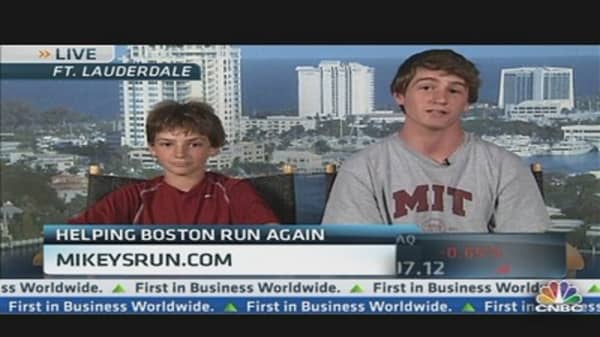There are four things you can do with a pile of money: spend it, give it to charity, give it to Uncle Sam or give it to your children. For years, maybe centuries, the last has been the least favorite option.
Most often, wealth creators fear the money will sap their heirs' incentive to make their own fortune. Others simply don't trust their children (or their spouses) with their loot.
"A lot of clients who have had their head down, building their business, realize that they have a substantial asset they can monetize," said Susan Colpitts, founder and CFO of Signature, a multifamily office based in Norfolk, Va. "They say, 'I don't want my child to have this money.'"
But the fact is that young Americans—the group known as millennials—are inheriting their wealth at a greater rate than the two previous generations. Among those under 32 years old with up to $1 million to invest, a third inherited their money, according to a study released this week by the wealth research firm Spectrem Group. Fewer than a quarter of Gen Xers or baby boomers can say the same.
Of those who have more than $1 million to invest, the disparity is even larger in favor of the millennials.
The good news is that the millennials may also be the generation most suited to their sizable inheritance. The youngest U.S. adults are shown in survey after survey to be conscious that the American Dream is no longer a guarantee, and that knowledge seems to have made them better savers, more risk averse and more worried about their retirements than their parents or their grandparents.
(Read More: Millennials Save Like the 'Greatest Generation')
They are even worried about their parents. "They'll say, 'I also need to include supporting my parents in their retirement,'" said Timothy Sabol, an Ameriprise financial advisor based in Conshohocken, Pa. "They want to know about those risks."
And indeed, Spectrem's study found that a greater percentage of millennials were concerned about caring for aging parents than they were about their own health. They are also more apt to use their wealth for social good.
George Walper, president of Spectrem, attributes both the millennials' financial conservatism and their awareness of the world around them to two landmark events, "September 11, 2001 and 2008," he said. The terrorist attacks and the onset of the recession at once opened them up to the world and caused them to protect their futures.


.530x298.jpg?v=1370005672)


